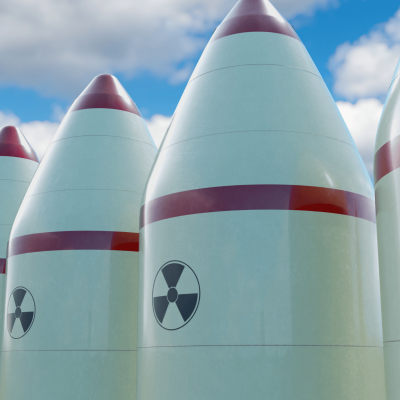Nuclear weapons are once again at the top of the scholarly and policy agenda after being on the sidelines of discourse for decades. Russia's 2022 invasion of Ukraine and Putin's brinkmanship have reignited concerns over nuclear war. Prospects for arms control agreements between the United States, Russia, and China appear dim, with the termination of the Intermediate-Range Nuclear Forces (INF) Treaty and China's nuclear buildup. Efforts to curb Iran's nuclear program face important challenges, and North Korea continues to develop its nuclear arsenal.
The Nuclear Security Program (NSP) aims to better understand and address these increasingly complex and challenging realities. Importantly, it also aims to diversify voices and perspectives on nuclear security. It brings together faculty members, current students, visitors, and recent graduates to campus to reflect on these issues.
Yale University has long been a pioneer in crafting debates around nuclear security. As the world was still reeling from the attacks on Hiroshima and Nagasaki, Bernard Brodie at Yale's Institute of International Studies conceptualized how we should contend with "the absolute weapon" and avoid nuclear war (Brodie 1946). Since then, Yale has trained a large group of academics to better understand our nuclear world, in its graduate programs and the ISS community. Yale students have also gone on to make key contributions to U.S. nuclear security and foreign policy more generally, including Dean Acheson (YC 1915), Roswell Gilpatric (YC 1928, Law 1931), Cyrus R. Vance (YC 1939, Law 1942), Paul Warnke (YC 1941), Gerald R. Ford, Jr. (Law 1941), George H. W. Bush (YC 1948), John F. Kerry (YC 1966), George W. Bush (YC 1968), William J. Clinton (Law 1973), Hillary R. Clinton (Law 1973), and Jake Sullivan (YC 1998, Law 2003).
The NSP was initially funded by a generous gift from the Stanton Foundation. It was housed in the International Security Studies Program at the Jackson School of Global Affairs in 2023-2024 and moved to the MacMillan Center in 2025.

